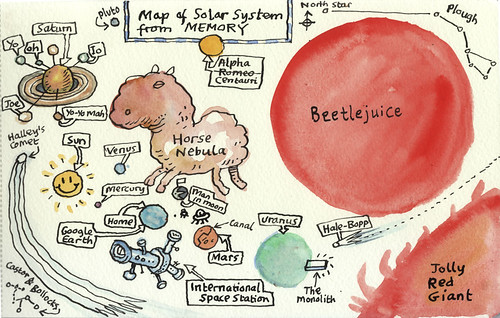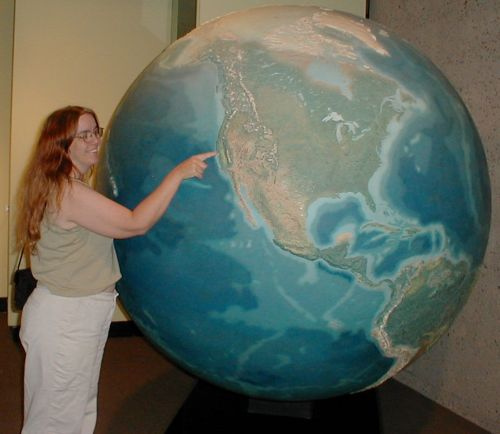
Thoughtful Thursdays #20:
5 hours ago
A geographile is someone who really likes geography.
I am joining the hundreds of thousands who shall be marching in this virtual march to demonstrate the concern that we all hold for the future of our planet and all the living things -- flora, fauna, human and animal -- that exist upon it. The governments of the world have tarried long enough, and the United States is scarcely without doubt the greatest culprit among them.
We the people have the strength to bring our country from our weak-kneed stumbling gait in the last ranks of reason to the leadership of the great march to environmental victory.I want to be in that parade and if there is a place up front I'd wish to lead the band or at least be assigned a big bass drum to help pound out the rhythm of glorious success.
- Walter Cronkite

The BBC has an animated map showing the spread
of swine flu globally. Iceland, Fiji, Morocco ... it's getting around.
It's still not in Madagascar. It's just a matter of time....















It was a little after 8pm when the water started flowing through the pipe running beneath the dirt streets of Bhopal's Sanjay Nagar slum. After days without a drop of water, the Malviya family were the first to reach the hole they had drilled in the pipe, filling what containers they had as quickly as they could. Within minutes, three of them were dead, hacked to death by angry neighbours who accused them of stealing water.
